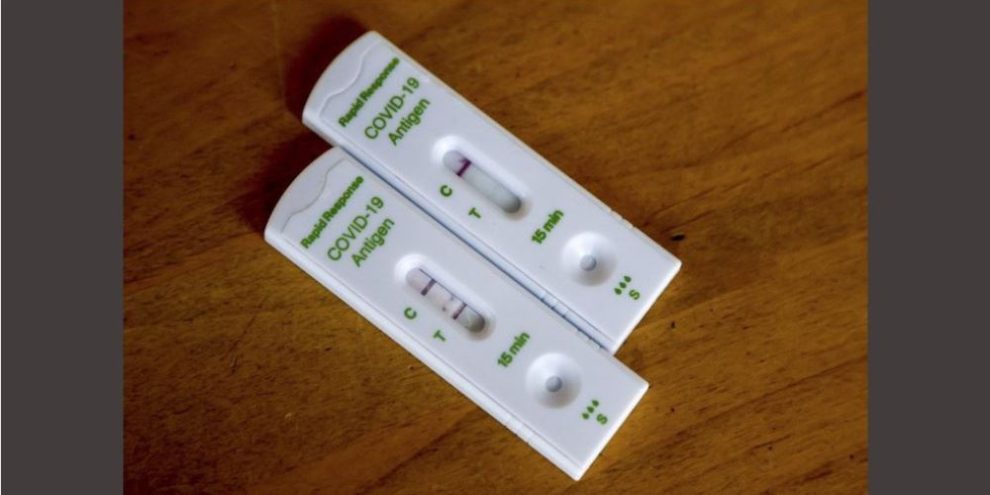
Nicole Thompson and Adina Bresge - The Canadian Press
As research suggests that COVID-19 has infected roughly half of the Canadian population, the emergence of an even more contagious version of the virus means some people may be in for another round.
But questions remain about the prevalence of reinfection, and the short and long-term health impact that subsequent cases of the virus could have.
With cases on the rise, here's what the experts had to say about the emerging evidence of reinfections.
How likely are reinfections?
The emergence of the Omicron variant ushered in a tsunami of infections that saw the proportion of the population with antibodies to the virus rise from seven per cent to 45 per cent between December 2021 and May 2022, according to an analysis published by Canada's COVID-19 Immunity Task Force this month.
The task force's co-chair, Catherine Hankins, said the jury is still out on how likely it is that this previously infected population will catch the virus again, particularly as the BA.5 subvariant of Omicron fuels a summer surge.
"All we know is that it can happen," said Hankins, a professor at McGill University. "This particular variant is really capable of evading immunity, including immunity to its previous ... subvariant."
Prabhat Jha, a professor of epidemiology at the University of Toronto’s Dalla Lana School of Public Health, said early hopes that Omicron would act as a “benign natural booster," spreading rapidly but causing only mild symptoms, did not bear out.
“As more evidence accumulates, it suggests that Omicron isn't the great protector that we all thought it would be,” he said, citing data from the U.K.
Lynora Saxinger, a professor with the University of Alberta's department of medicine, said BA.5 is different enough from previous strains that the immunity built up by a case of an earlier variant may not prevent infection.
"It's not impossible to get reinfected," she said.
How much protection do you get from "hybrid immunity"?
People who have been both vaccinated and infected should be bolstered by "hybrid immunity," said Hankins. But signs that some people are getting reinfected with COVID-19 not long after a previous bout indicates that any natural immune boost would be short-lived, she said.
"People really shouldn't think it's done and dusted. They get it, and that's it," Hankins said. "You're going to get it again if you keep exposing yourself."
Saxinger said that BA.5 may be even more adept at breaking through hybrid protection, but at this point, it's uncommon for people who have had Omicron to be reinfected by one of its relatives.
"The combination of vaccination plus relatively recent-ish infection… is not terrible against (BA.4 or BA.5,) especially if you don't have any risk factors."
Canadian studies have shown that people with three COVID-19 vaccines and one infection have the highest level of antibodies, Jha said.
Still, he emphasized that people who have been infected can benefit from another COVID-19 shot.
"The evidence does very clearly say that counting on a natural infection to protect you is really risky. We knew that from the start," he said. "The best protection is at least three doses of the vaccine."
How does reinfection affect the severity of illness?
Hankins said it’s difficult to track whether people, on average, get sicker the second or third time catching COVID-19.
"It seems to vary a lot by people,” she said. “The general expectation would be that you wouldn't be as sick the second time around, but we're seeing everything."
While governments report a high number of people in hospital – some of whom have had the virus before – may seem to suggest that reinfection leads to more serious illness, Saxinger said, that’s not necessarily the case. It's just that there are more cases of COVID overall.
“It's really a function of just the sheer volume of transmission where we start to see increases in severe outcomes,” she said. “But on a per person level, the risk of severe outcome still seems to be quite low, especially if you've had a combination of being fully vaccinated, and also previously infected.”
Jha said this is another area where more study is needed.
"But in theory, I have no doubt that having multiple infections isn't good for you,” he said.
"Some cavalier people say, ‘I'm just going to get infected a few times, and then I'll be fine,'" he added.
It’s also unclear, he said, whether reinfection increases that likelihood of contracting long COVID.
“There is a suggestion that multiple infections can contribute to longer symptoms. But again, this is something we don't know enough about."
What should we do?
"Everyone wants a quick answer and says, ‘Okay, I want to know what to do. And I want to get this behind me,’” Jha said. “But the virus works on its own timetable."
"Our immune system is trying to keep up with a mutating virus ... And we have to basically be sensible."
Increasing third-dose uptake is key to protecting people from reinfections, he said. Each shot you receive reduces the severity of disease.
National data shows only 56 per cent of Canadians 12 and older have at least three doses of a COVID-19 vaccine, compared to roughly 90 per cent who have two doses.
Hankins agreed that getting a third shot is crucial.
"This is a highly infectious agent, but the more immunity you have on board, the better it is,” she said.
banner image: Jeff McIntosh, The Canadian Press






